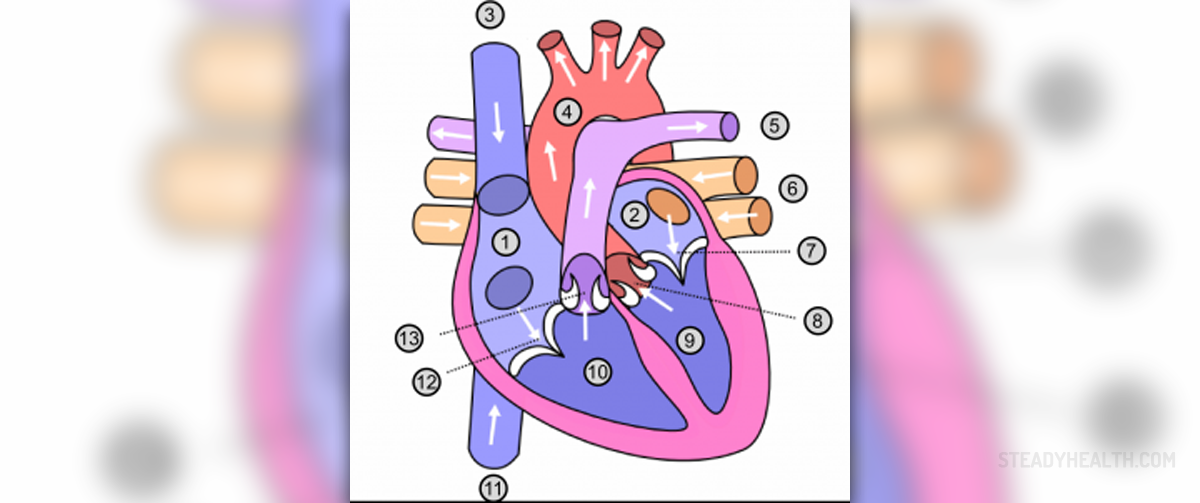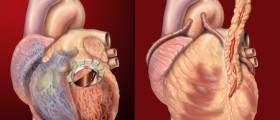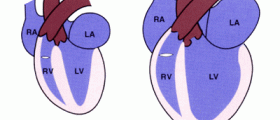
Murmurs can be defined as extra heart sounds and they develop as a consequence of turbulent blood flow. Heart murmurs can be easily heard with the assistance of a stethoscope. Heart murmurs can be functional and pathologic. Functional heart murmurs result from physiologic conditions outside the heart and they are considered benign. On the other hand, pathologic murmurs are associated with certain heart conditions, most commonly problems with heart valves. Apart from the previous classification pathologic murmurs are further divided depending on their characteristics. A well experienced doctor can recognize different types of pathologic heart murmurs.
Heart murmurs may affect people of all age. In adults heart murmurs may be both, functional and pathological.
Benign Heart Murmurs in Adults
Benign heart murmurs in adults occur due to several factors. The first one is faster flow of the blood through the heart and blood vessels of the heart. The second one is increase in the amount of blood that flows through the heart. And finally, benign heart murmurs in adults may be related to surgery or the process of aging.
Pathological Heart Murmurs in Adults
Pathologic heart murmurs are always connected to some underlying heart condition. There are certain structural changes of the heart which interfere in normal flow of the blood and cause the occurrence of heart murmurs. The damage to the heart muscle and its valves can be caused by previous infection (endocarditis). Rheumatic fever is common cause of damage to the heart structures and subsequent occurrence of heart murmur. Pathologic heart murmur may be also a consequence of calcification of the mitral and aortic valve as well as mitral valve prolapse. In general, malfunctioning of the heart valves features with heart murmur.
How to Diagnose heart Murmur in Adults
Heart murmur can be easily heard during auscultation of the heart. The doctor uses a stethoscope, a special acoustic medical device which allows human ear to properly hear heart sounds, both physiologic and pathologic. The stethoscope is also used in auscultation of the lungs and intestines. It helps doctors to more precisely determinate the exact type of the heart murmur.
Treatment for Heart Murmurs in Adults
Physiologic heart murmurs are normal and they require no treatment. On the other hand, in case of pathologic heart murmurs it is essential to identify the underlying heart condition, estimate the damage to the heart muscles and treat the underlying condition. The treatment may be medicamentous or surgical depending on the very condition and the damage to the heart structures.

















Your thoughts on this
Loading...